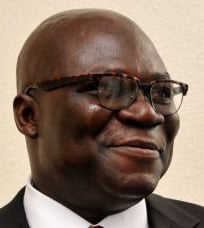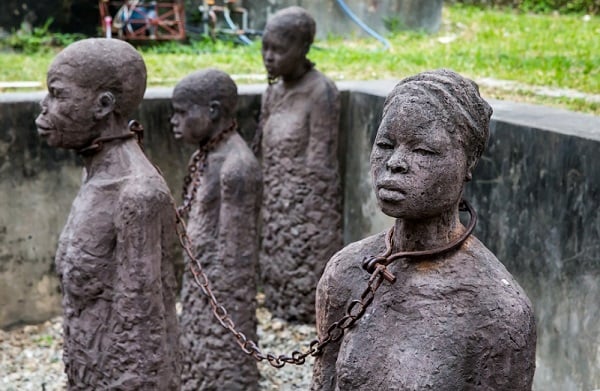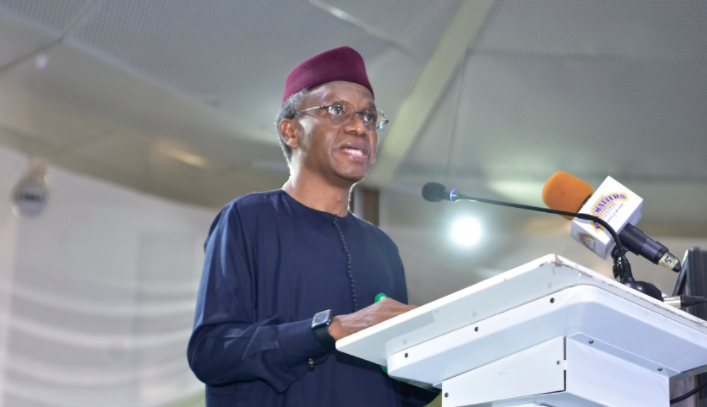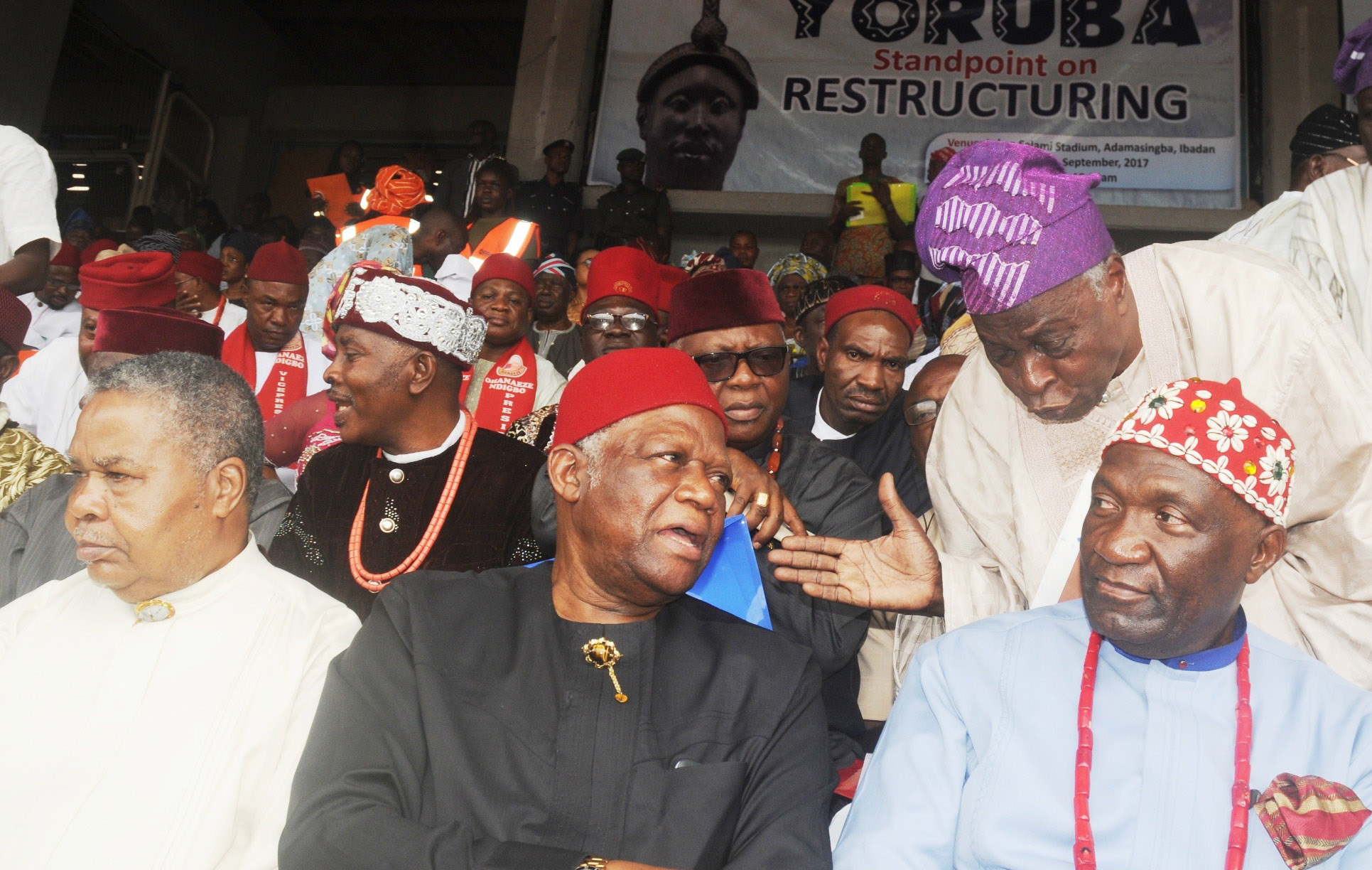People and rescuers gather at the site where a Nigerian air force plane crashed while approaching the Abuja airport runway, according to the aviation minister, in Abuja, Nigeria February 21, 2021. REUTERS/Afolabi Sotunde
The Nigerian Air Force is the youngest arm of the Nigerian military having been established only on April 18, 1964. In the course of its 57 years of operation, defending the air space of Nigeria and the country’s territorial integrity, the NAF has seen action in many theatres of operation: the Nigerian Civil war, Liberia, Sierra Leone, Mali, the Gambia and Nigeria’s zone of terror, the North East, producing in the process some of the finest officers that have served their country in the best traditions of military service. Modern warfare is no longer all about boots on the ground or physical combat. Advancements in technology and Artificial Intelligence have motivated more countries to invest more in technology, brain power and air power, in the same manner in which having a large Navy was the fashion at the turn of the 19th Century.
In terms of military aircraft strength, Nigeria is ranked 65 out of 140 countries in a 2021 Global Firepower Index, far behind Egypt (10), Algeria (22). Morocco (40), Sudan (51), Tunisia (58) and Kenya (59). But whereas it is generally agreed that Nigeria needs to re-tool, fund, and re-position its military, especially in the face of the spread of terrorism, the more urgent concern is the manner in which Nigerian Air Force aircraft have been crashing from the skies. The Nigerian Air Force operates Nigeria’s Presidential Fleet. Either now or in the past, whenever an aircraft under the control of the Air Force crashes, much anxiety is necessarily expressed about an arm of the Nigerian military whose motto is “Willing…Able..Ready”. The question is reasonably asked: how able or ready is the Nigerian Air Force?
Air accidents no doubt occur, and there have been over 60 of such accidents in Nigeria since 1925 when the first aircraft flew across Nigerian skies. This could be due to technical error, sabotage, inclement weather, or an act of God. Where a military aircraft is involved, conspiracy theories are generated. A quick look at the history of air mishaps involving the Nigerian military indicate until now, a pattern of occasional, even if tragic occurrences. On September 26, 1992, a Nigerian Air Force Hercules C-130 crashed just a few minutes after taking off from the Lagos Airport, leading to the death of all 158 persons on board. On September 12, 1997, a Dornier 228-212 belonging to the NAF also crashed with 10 persons on board. Nobody survived. Nine years later, precisely on September 17, 2006, a Dornier 228 military plane crashed at Vandekiya, Benue State killing 14 military officers including 10 Generals. In August 2015, another Dornier 228-212, NAF 030 crashed in Kaduna, all seven on board died. On September 28, 2018, a Nigerian Air Force Pilot died after two aircraft crashed around Katampe Hill, Abuja, while rehearsing for the nation’s 58th Independence Day celebrations. In each of these incidents, valuable men were lost; families were thrown into sorrow. In at least two incidents, it was widely speculated that the officers who lost their lives were victims of sinister power play within the military. Each time such an accident occurs, the public is told that investigations would be conducted and that the Accident Investigation Bureau had taken charge of the famous “Black Box”. But nobody ever shares the “secrets” in that Black Box with the public, whether the air mishap was civilian or military.
There is however a need to insist on transparency. Air mishaps involving the Nigerian military have now become so regular, so unbelievable. The latest occurred on Friday, May 21, 2021 when a Beechcraft KingAir 350i, NAF 203 crashed near Kaduna International Airport. Eleven military officers, including the Chief of Army Staff, Lt. General Ibrahim Attahiru, lost their lives in that mishap. General Attahiru assumed office on January 26, 2021. He was appointed by the President along with the current Chief of Defence Staff, General Lucky Irabor, Chief of Naval Staff – Rear Admiral Awwal Gambo, Chief of Air Staff – Air Marshall Oladayo Amao. The Irabor squad hit the ground running, with Attahiru visiting the war front immediately to address his troops. He was a hands-on General, He had fire in his belly. His voice echoed the amplitude of his position. It was as if he needed to prove a point having been removed previously, rather unceremoniously, as Commander, Operation Lafiya Dole by the man he succeeded, that is his former boss, now retired Gen. Tukur Buratai.
Advertisement
With Attahiru in that ill-fated aircraft was Brigadier General Abdulkadir Kuliya, then acting Chief of Military Intelligence described by his colleagues as a detribalised Nigerian with a kind heart, Acting Provost Marshall of the Army, Brigadier General Olatunji Olayinka, Chief of Staff to the COAS, Brigadier-General Mohammed Abdulkadir, Aide-De-Camp to the COAS, Major Lawal Aliyu Hayat, Major Nura Hamza and the pilots. Flt Lt. Taiwo Olufemi Asaniyi was looking forward to his wedding. Flt. Lt. A.A. Olufade got married only two months ago! Sergeants O.I. Adesina, Umar Saidu and ACM Olamide Oyedepo also had a bright future ahead of them. Sgt Opeyemi Adesina of Iddo Community, Egbedore LGA, Osun State died three weeks after his daughter’s dedication. But now all that is ended. Gone. Flt Lt. Olufade’s father is devastated. Who wouldn’t be? Asaniyi’s fiancée has posted a touching tribute on social media. It is heart-breaking. Hopes aborted. Potentials unfulfilled.
Nigerians are outraged that the Federal Government did not handle the tragedy well. They expected the President to attend the funeral. He wasn’t there. They thought if the President could not make it, then the Vice President would show up. Here, the problem is that the Vice President can only represent the President if he is directed to do so. He cannot go on a frolic of his own without the President’s permission. The President sent the Minister of Defence, General Bashir Magashi to represent him, but this particular representative only ended up adding petrol to public anger. General Magashi could not deliver a written speech in a fluent manner. He expressed displeasure on behalf of the President. Displeasure that a funeral ceremony was taking place? He mixed up titles in a rather windy protocol list. He ruined it all by conveying “heartless felt condolences” on behalf of the President. Heartless! Magashi obviously was not prepared. He probably did not read the script. People find themselves in important positions in line with Peter’s principle and when they do not rehearse before engaging in the task of public communication, they stutter and descend to lower depths. Magashi is a lawyer and a distinguished soldier in his earlier career. But all geriatics in government who may have issues reading prepared speeches should just be allowed to speak vernacular going forward. General Magashi could just have spoken Hausa, Igbo or Yoruba and have someone translate it for him. Hausa, Igbo and Yoruba languages are officially recognized in the Nigerian 1999 Constitution in Section 55. Why struggle with the English language under difficult circumstances when you can just speak one of the three languages recognised by the Nigerian Constitution! As if that was not enough, it took the Federal Government till Monday, May 24 to direct that the Nigerian flag should be flown at half mast in honour of the dead. The gesture was so belated, it was seen as an afterthought. And then the President declared a May 24 holiday for men of the Nigerian Air Force in the middle of a war in the North East. Nigeria is probably the only country where a whole division of the Armed Forces would be directed to go on holiday for 24 hours!
One of the spokespersons for President Buhari has offered the explanation that the President could not attend the funeral ceremonies for the fallen officers for security reasons. We have been told that the President needs 48 hours’ notice before he can move from the Villa. Are we being told that the President is now being held hostage? Or what? He is Commander in Chief of the Armed Forces, for crying out loud. He has an entire Brigade of Guards protecting him and the FCT. What 48-hour security clearance does the President require to protect his movement between the Villa and the National Cemetery to honour his own troops who fell while on official duty? It also took the Vice President more than 24 hours to issue a condolence message via Twitter. Was that also for security reasons? Governance is about substance, symbols and gestures. The consensus among Nigerians is that the President showing up at the funeral ceremony would have been a morale booster for the military. I think so too.
Advertisement
We had a guest on The Morning Show, Arise TV on Monday, May 24, Retired Air Commodore Abayomi Balogun, NAF pilot for more than 30 years. He was of the firm opinion that nobody should worry about the morale of the troops. Soldiers he said know what they signed up for. They are ever prepared to pay the ultimate sacrifice. And whether or not the President attends a funeral of fallen men, the task of defending Nigeria goes on. Commodore Balogun is a very articulate man who knows his field like the back of his hands. That was how he came across. But upon further reflection on his views, I disagree with him. Loyalty to one’s country, serving and dying for it, is not an automatic obligation. Soldiers are human beings. They also have families. They expect to be appreciated for their sacrifice. That is why recently, they have been bold enough to complain about welfare, rebel against their commanders, and post uncomplimentary videos on social media about the Nigerian military. A strong morale emboldens the soldier. We need to be more sensitive to their needs, feelings and concerns.
And this: While the big men dropped the ball, their wives picked it up. We must commend Mrs Aisha Buhari and Mrs. Dolapo Osinbajo for their empathy, compassion, and beyond the-other-room responsible citizenship. Mrs. Osinbajo, the Vice President’s wife visited the wives of all the 7 Abuja-based officers from Niger Barracks to NAF Base. She was accompanied by Senator Remi Tinubu and others. First Lady, Mrs Buhari also visited the wife of the late Chief of Army Staff. She was accompanied by her children and others. President Buhari has now made phone calls to some of the affected families. We are glad he finally got security clearance for that.
Beyond our review of responses to this tragedy, what remains is to raise questions about what needs to be done to check the crisis of repeated crashes afflicting the Nigerian Airforce. Three aircraft belonging to the military have been involved in accidents within the last 90 days, this year alone. The affected aircraft were not involved in combat. They did not crash in a theatre of war. They were engaged either in a reconnaissance operation or utility transportation. Three months ago, that is on February 21, 2021, a Beechcraft KingAir B350i plane belonging to the NAF developed engine failure on its way to Minna. It was asked to return to the Nnamdi Azikiwe International Airport, Abuja, from where it commenced its journey. It crashed on its way back. All seven personnel on board died. On March 31, 2021, NAF Alpha Jet 475 on a reconnaissance mission was declared missing. Its wreckage was later found in Bama, Borno State. The body of one of the pilots (Flt, Lt. Chapele Ebiakpo) was found intact. The other pilot (Flt. Lt. John Abolarinwa) could not be found. Two months later, there has been no word from the Air Force authorities.
In Nigeria, accident peril is treated as top secret. This must stop. Secrecy in matters involving loss of human lives breeds distrust against the system, and promotes speculations. The May 21 crash that took the life of the former Chief of Army Staff Ibrahim Attahiru has been linked to the self-immolation, a few days earlier, by Ibrahim Shekau, leader of the Boko Haram who was reportedly cornered and ambushed by the rival Islamic State of the West African Province, and who chose to commit suicide. Could the NAF plane crash of May 21 be a form of reprisal attack? Did the Nigerian military know anything about the reported death of Ibrahim Shekau? The Presidency said President Buhari had to stay away from the funeral of the dead officers for security reasons. Is there something we should know that no one is willing to tell us?
Advertisement
Whatever anyone is thinking, nobody can live forever. There will be people today who will be calling the former Chief of Army Staff, General Tukur Buratai, to congratulate him on his good luck of having been removed from office. Attahiru and his team were on their way to Kaduna to attend the Passing Out Parade (POP) of recruit officers. That could indeed have been Buratai performing the same function. That is life. Exits and entrances. Each man at his own time. But one thing: Attahiru and his crew would not have died in vain if every effort is made to check the emerging trend of Air Force planes crashing in non-combatant situations. Not even in Colombia do military aircraft drop from the skies like this! The Nigerian Government must institute an independent inquiry and review beyond the preliminary findings of the Accident Investigation Bureau which appears to be part of an entrenched culture of secrecy.
The standard response from the Nigerian military is to deny any wrong-doing. Spokesperson of the Nigerian Air Force, Commodore Edward Gabwet has said that the aircraft involved in the 2021 mishaps were all brand new. Really? Is he sure? New things can crash, yes, but how new? We would like to know. Safety is the first consideration in aviation. How safe are the NAF planes? How often are they maintained? It is not enough to blame the weather, the most convenient fall-guy in situations like this. How well does the NAF maintain its aircraft? How capable are its personnel? Is the NAF “willing…able..and ready?”
Finally, the coffins of the fallen soldiers had not yet been sealed before those interested in their positions began to jostle for space and opportunity, with stories and permutations – ethnic, class and religious – about who should emerge as the next Chief of Army Staff. It is the prerogative of the President to choose his own lieutenants. He should act swiftly, decisively and wisely. Our heartfelt condolences to the families of the deceased.
Advertisement
Views expressed by contributors are strictly personal and not of TheCable.
Add a comment







